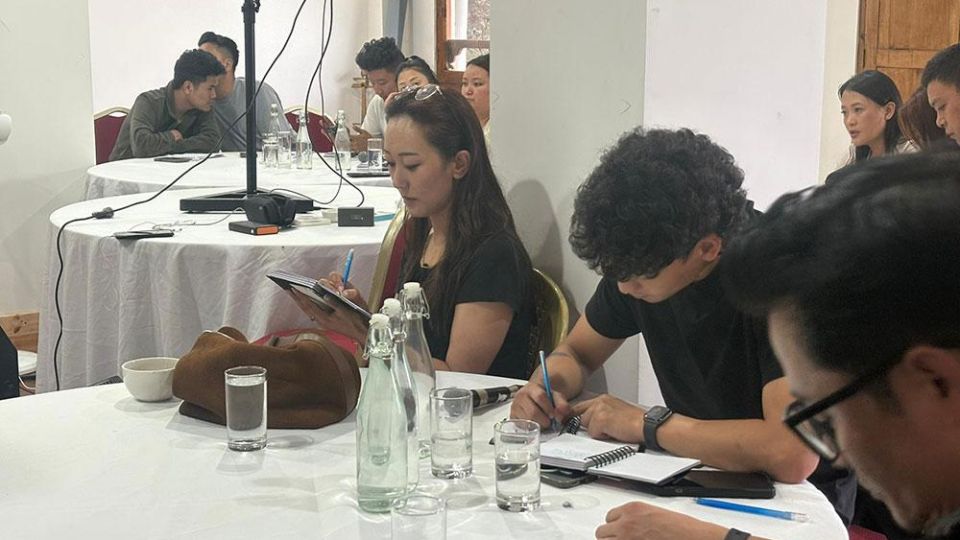October 2, 2025
PUNAKHA – After nearly two decades on stage, one of Bhutan’s most popular singers, Ugyen Panday, is going back to the basics. For the first time in his career, he has undergone formal vocal training—learning to refine his breath control, pitch, and stage presence. It is a move he believes will transform his style and bring new energy to his performances.
He was among more than 20 Bhutanese artists who came together in Punakha for a week-long training that concluded on September 28. The programme, the first of its kind in the country, was organised by the Department of Media, Creative Industry and Intellectual Property (DoMCIIP).
Most singers in Bhutan, whether seasoned or just starting out, have built their craft through passion and self-learning. With no formal vocal training institute in the country, and little exposure beyond Bhutan’s borders, opportunities to refine technique and performance have been limited.
“This training is about rediscovering your potential and understanding the range, scale, and pitch your voice can carry,” Ugyen Panday said. “It’s not just about singing but it’s about becoming a complete performer. This is my first time attending such training, and I’m confident that what we’ve learned will make most of us better singers than we are now.”
Expanding skills and confidence
The training guided participants through essential techniques such as range extension, breath control, articulation, and ear training. It also introduced them to studio dubbing, stage performance, and the business side of music, including branding, vocal health, and self-promotion.
The core aim, according to organisers, was to support the professional development of Bhutan’s vocal artists—helping them elevate their performances and contribute to higher-quality music production in the country.
A four-member team of trainers, led by renowned Indian vocal coach Thompson Andrews, offered hands-on mentorship and expressed interest in providing ongoing lessons to select Bhutanese artists. Andrews, a composer, singer, and creative entrepreneur with over 17 years of experience, noted both the promise and limitations of the participants.
“They were singing within a single scale, range, and pitch,” he said. “Now, with the techniques we’ve taught, I’m confident they’ll be able to explore different genres and experiment with their voices. This training opens up a whole new universe for them to explore.”
Lifting the industry
For senior singers, formal training also means protecting their voices from strain, extending their careers, and empowering them to guide younger talents. The programme emphasised the need for collaboration, encouraging artists to look beyond Bhutan. Thompson urged participants to step out of their “small bubble” and work with international brands and musicians, reminding them to “see themselves as a premium product.”
The training also aligns with Bhutan’s efforts to strengthen its creative industries. By improving professional skills and encouraging artists to monetise their work through copyrights, royalties, and global partnerships, it supports DoMCIIP’s goal of projecting Bhutan’s cultural soft power internationally.
Building for the future
The training was coordinated in part by popular singer Pema Deki, who said it specifically included artists working in Rigsar, Western, and Bollywood genres.
“During our time, we never got such opportunities, nor did we know about these techniques, but now we are paving the way for younger generations and new artists to reach their full potential,” she said.
While not all artists could attend due to other commitments, she ensured the wider community was informed.
Calling this only the beginning, she expressed hope that the government will continue to provide similar opportunities in the future.
For Bhutanese music, still heavily dependent on self-taught talent, this week-long training may mark a quiet turning point—equipping performers not only to sing better but also to take their place on national and international stages with greater confidence.


